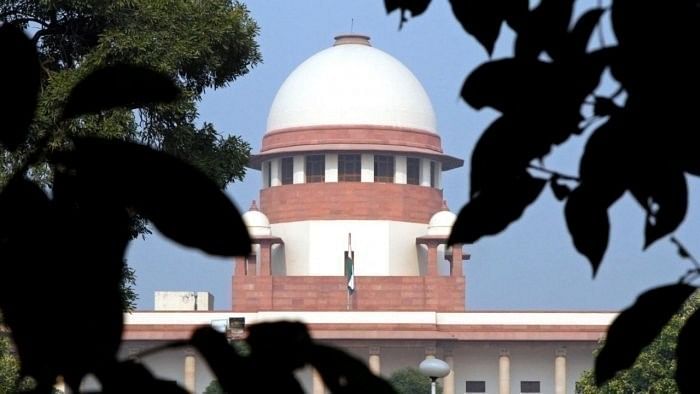
The Supreme Court of India.
Credit: PTI File Photo
New Delhi: The Supreme Court on Thursday asked those challenging validity of exception carved for husband from penal provision of rape to respond to the Centre's contention that making such acts punishable would severely impact the conjugal relationship and cause serious disturbances in the institution of marriage.
Initiating hearing on a batch of petitions including AIDWA, a bench of Chief Justice of India D Y Chandrachud and Justices J B Pardiwala and Manoj Misra said the court will decide the constitutional validity of penal provisions in the Indian Penal Code (IPC) and the Bharatiya Nyaya Sanhita (BNS) which grant immunity from prosecution to a husband for the offence of rape if he forces his wife, who is not a minor, to have sex with him.
Senior advocates Karuna Nundy, and Colin Gonsalves, appearing for one of the petitioners, contended the range of harm if a woman is raped by the husband or a stranger is not different. In a case of live in relationship, sex without consent is treated as rape then why not in marital relation, they asked.
The bench also asked whether such a decision would not result in the court creating an offence against the will of the legislature.
The petitioners counsel contended it would not since the offence has already been in the statute and it would not be new offence. They said Section 377 IPC was still applicable in marital relationship.
They are also similar kind of arguments on disturbing institution of marriage were raised in UK and Nepal, but it was rejected.
The counsel also cited the right to privacy judgment in the K S Puttaswamy case to point out it has been held that the screen of the privacy can't be used to inflict gender-based violence or abuse the rights of women.
The counsel also said this was not a case between men versus women but people versus patriarchy case.
Notably, the Central government, in its affidavit filed in the SC on October 3, had opposed the batch of pleas against the criminalisation of marital rape, on the ground that there are already "suitably designed punitive measures" in place in the sensitive issue.
It had said striking down Exception 2 of Section 375 of IPC on the grounds of its constitutional validity will have a far-reaching effect on the institution of marriage.
"It may severely impact the conjugal relationship and may lead to serious disturbances in the institution of marriage. In the fast-growing and ever-changing social and family structure, misuse of the amended provisions can also not be ruled out, as it would be difficult and challenging for a person to prove whether consent was there or not," the Centre said.
The marital rape issue cannot be decided without proper consultation with all the stakeholders in the case or taking the views of all the Stakes into consideration, the Union government had said.
